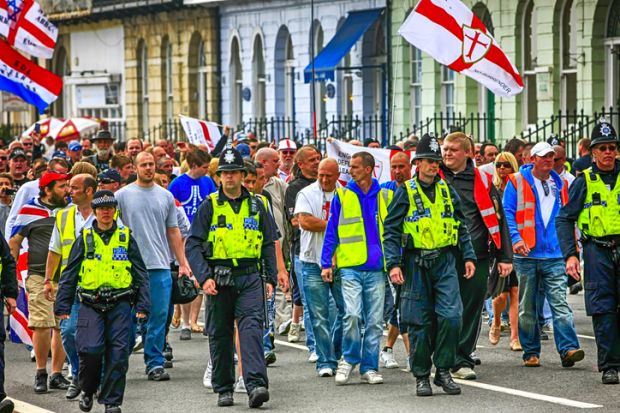England’s university free speech legislation will “give free rein to extremists” to speak on campuses, Labour has warned.
With the Higher Education (Freedom of Speech) Bill due to get its second reading in the House of Commons on 12 July, the opposition confirmed that it would vote against the law and urged Conservative MPs to join them.
The bill would strengthen existing free speech duties on universities and extend them to students' unions, as well as enable individuals to sue for compensation if their free speech rights have been breached.
This is designed to allow students and academics who are “disciplined because of their views” or “visiting speakers who are disinvited or ‘no platformed’” to take action. But the legislation has sparked fears that universities will be obliged to host speeches by Holocaust deniers or other extremists, and that institutions – and unions – could become embroiled in potentially costly legal action.
Kate Green, the shadow education secretary, said that it was “shocking that the Conservatives are introducing a new law to give free rein to extremists, anti-vaxxers and people harmful to the public interest at our universities”.
“These wholly unnecessary plans are wasting time on creating legal protections for people whose only aim is to cause division and spread hate,” Ms Green said.
“These are clearly the wrong priorities for Britain. Conservative MPs should vote with us against this bill, which has dangerous and deeply troubling consequences.”
The potential for Holocaust deniers to be given a platform is a difficult issue for the government because it has made strident efforts to make all English universities sign up to the International Holocaust Remembrance Alliance definition of antisemitism and to take action against antisemitism on campuses more broadly. However, Holocaust denial is not illegal in the UK, which could lead to people launching a claim if they are denied a platform.
A Department for Education spokeswoman said that freedom of speech was “not an absolute right and does not include the right to harass others, incite them to violence or terrorism”.
“There is nothing in this bill which encourages higher education providers or students’ unions to promote baseless and harmful claims or bad science on campus, and it is categorically untrue to suggest that the bill will introduce a new right for individuals who seek to deny or distort the Holocaust to speak on campus,” the spokeswoman said.
“It will strengthen protections for lawful freedom of speech, which is likely to support Jewish students who on a number of occasions have had their speech shut down by others.”
The bill also includes the creation of a post of free speech and academic freedom champion to the board of the Office for Students. Lord Wharton of Yarm, the regulator’s chair, has said that government concerns go beyond no-platforming and surround “a monoculture” in “some parts of the sector”, where people “feel they can’t speak out” because of their political views.
However, Lord Wharton said that the new champion would need to be the “right person”. “If we get the wrong person, then clearly there could be some challenges,” he said.
Register to continue
Why register?
- Registration is free and only takes a moment
- Once registered, you can read 3 articles a month
- Sign up for our newsletter
Subscribe
Or subscribe for unlimited access to:
- Unlimited access to news, views, insights & reviews
- Digital editions
- Digital access to THE’s university and college rankings analysis
Already registered or a current subscriber? Login








